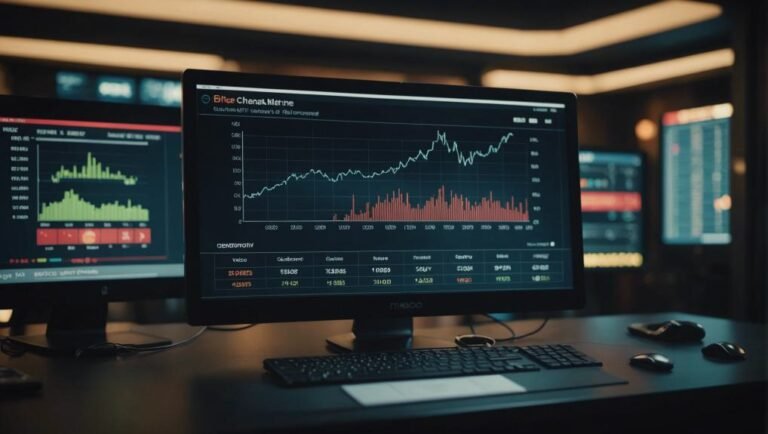AI in Influencer Marketing
Influencer marketing with AI optimizes influencer selection for precise audience targeting. Data insights drive strategic partnerships aligned with brand values. Automated outreach enhances engagement, fostering authentic collaborations. AI boosts content strategy by tailoring messages based on real-time trends and consumer behavior. Performance analysis refines future strategies, predicting impactful trends. Advanced analytics maximize ROI by tracking campaign performance and optimizing for targeted audiences. Personalized campaigns through AI algorithms enhance user engagement and content relevance. The future landscape will focus on authenticity, ethical transparency, and leveraging AI for top-notch influencer partnerships. Transform your approach with AI in influencer marketing for enhanced results and continued success.
Key Takeaways
- AI enables precise influencer identification aligned with brand values and target demographics.
- Data-driven insights optimize content strategy for tailored and engaging materials.
- Performance analytics refine influencer campaigns for maximum impact and ROI.
- AI algorithms revolutionize personalization, tailoring content to individual preferences.
- Future trends include authentic brand partnerships and ethical considerations in influencer marketing.
Influencer Identification With AI
Utilizing artificial intelligence allows for the efficient and precise identification of influencers who align with specific brand values and target demographics. By leveraging data-driven insights, businesses can strategically form influencer partnerships that resonate with their audience.
AI streamlines the process by analyzing vast amounts of data to pinpoint influencers whose content and followers align with the brand's objectives.
Automated outreach is a key component once the right influencers are identified. AI tools can facilitate personalized communication at scale, ensuring that influencer engagement is both efficient and effective.
Through automated outreach, brands can establish meaningful connections with influencers, leading to more authentic collaborations and impactful campaigns.
AI-Driven Content Strategy
Enhancing content strategy through artificial intelligence enables brands to optimize their messaging and delivery methods based on real-time data and insights. By harnessing AI for data analysis, brands can investigate deeply into consumer behavior patterns, preferences, and trends to tailor their content creation accordingly.
AI-driven data analysis provides invaluable insights into which types of content resonate best with your target audience, allowing for the creation of more engaging and personalized materials.
Moreover, AI can streamline the content creation process by automating tasks such as generating topic ideas, crafting compelling copy, and even designing visuals. This not only saves time but also guarantees a more consistent and coherent brand voice across various platforms.
Additionally, AI tools can analyze the performance of past content to identify patterns and predict future trends, further refining the content strategy for maximum impact.
Performance Analytics and Optimization
AI-driven performance analytics and optimization play a pivotal role in fine-tuning influencer marketing strategies to maximize impact and ROI. Through advanced campaign tracking and data visualization, AI empowers you to precisely monitor the performance of your influencer campaigns.
By leveraging audience segmentation, you can identify specific demographics or interests that respond best to certain influencers, enabling targeted optimization techniques for enhanced engagement.
Data visualization tools allow you to quickly grasp key metrics such as engagement rates, click-throughs, and conversions, facilitating informed decision-making. By analyzing these insights, you can adapt your influencer partnerships in real-time, ensuring that your marketing efforts align with your objectives.
Furthermore, AI provides the capability to implement optimization techniques based on the data gathered, refining your strategy continuously. By utilizing AI-driven performance analytics, you can't only measure the effectiveness of your influencer marketing but also adapt and improve your approach for greater success.
Personalization Through AI Algorithms
Personalization in influencer marketing is revolutionized through the strategic application of AI algorithms. By leveraging AI, influencers can tailor content to suit individual preferences, boosting user engagement and customization.
AI algorithms analyze vast amounts of data to understand the target audience better, allowing for precise segmentation and personalized content delivery.
Through AI-driven personalization, influencers can create more relevant and compelling campaigns that resonate with specific audience segments. By understanding the preferences, behaviors, and demographics of their followers, influencers can deliver content that aligns with the interests of each segment. This targeted approach enhances user engagement by offering content that's more likely to capture attention and drive interaction.
Furthermore, AI algorithms enable influencers to adapt content in real-time based on audience responses, ensuring continuous optimization for maximum impact. The ability to personalize content at scale not only enhances the overall effectiveness of influencer marketing campaigns but also fosters stronger connections between influencers and their followers.
Ultimately, AI algorithms play a pivotal role in elevating the personalization capabilities within influencer marketing, leading to more impactful and engaging campaigns.
Future Trends and Innovations
Anticipate an evolution in influencer marketing as emerging technologies and shifting consumer behaviors pave the way for new trends and innovations in the industry. Brand partnerships will continue to play a vital role in influencer marketing, with a focus on authenticity and alignment between influencers and brands becoming paramount.
As AI algorithms become more sophisticated, brands will leverage these tools to identify the right influencers for collaborations, ensuring a seamless fit that resonates with their target audience.
Ethical implications will also shape the future of influencer marketing. Transparency and disclosure will be key as consumers demand authenticity and honesty from influencers. Regulations around sponsored content will likely become more stringent, requiring influencers to clearly disclose paid partnerships.
This will lead to a shift towards genuine and meaningful connections between influencers and their followers, fostering trust and loyalty in the long run.
Conclusion
To sum up, without a doubt, incorporating AI into influencer marketing is like having a high-powered microscope to examine and analyze the intricate details of your campaign.
The ability to identify influencers, strategize content, optimize performance, and personalize messaging with AI algorithms opens up a world of possibilities for brands seeking to maximize their marketing efforts.
As technology continues to advance, the future of influencer marketing will without question be shaped by innovative AI-driven solutions.







